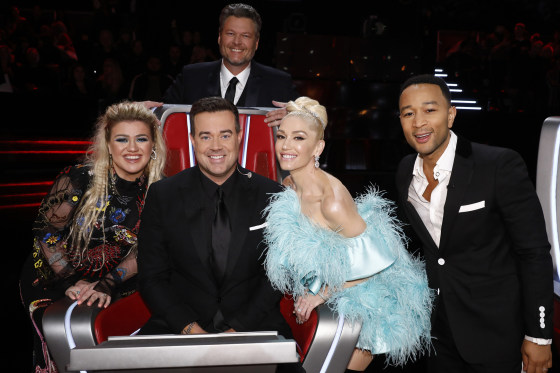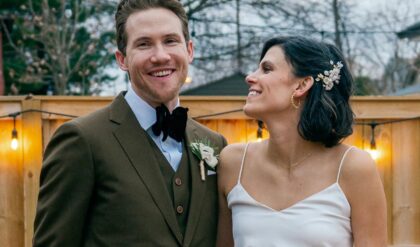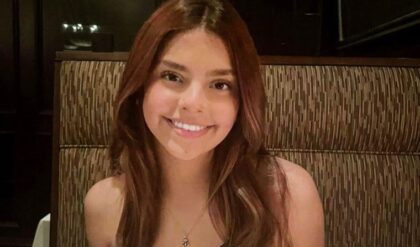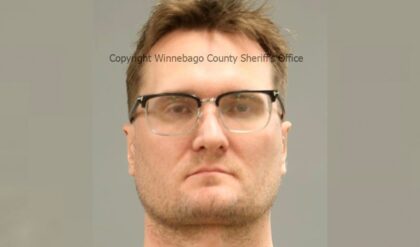
Awards Daily talks to The Voice executive producer Audrey Morrissey and host Carson Daly about how the reality competition series has stayed relevant—and kind—for 25 seasons.
There’s a list of singing competition shows that NBC’s The Voice has outlasted, but to mention these would be unkind—the exact opposite of what the Emmy-winning series set out to do when it started back in 2011.
“The Voice came on with this wild idea that we’re going to judge people on voice alone and not based on what they look like,” says The Voice executive producer Audrey Morrissey. “That was really appealing to the coaches because, before MTV, that’s all you had to go on. People only heard you through the radio. I think [the show has lasted because] it was really kind-hearted. At the time, some of the other shows weren’t always as kind.”
“People thought, god, we can’t have another one of those singing shows,” echoes The Voice host Carson Daly. “We took singing on TV very seriously. We didn’t make fun of people. That’s why we have coaches. We thought mentoring and that positive TV vibe would play well. When we were first in production, there was a lot of slapping on television, like on the Housewives shows. Reality was becoming very prolific along with shock-and-awe TV. We felt that if we could tap into what’s cool about reality and reality competitions and present it in a much more positive light, that could work for us. And I think that did.”
Of course, since day one, The Voice has faced comparisons to FOX’s American Idol, but instead of trying to imitate their formula, it ended up setting new benchmarks, like the refreshed judges or “coaches,” according to Voice vernacular.
“We switch out the coaches,” says Morrissey, “and when we swap in new ones, it’s really wonderful to see them experience that. They’re always stunned and often comment, ‘Wait, I’m getting paid to do this? I’m getting paid to listen to great music and joke around with my peers and connect with my team and help them?’ It seems every week, Reba [McEntire] is like waterworks [laughs]. She’s so connected. They all are.”

In addition to adopting a new judging model, American Idol has also done away with their early-season episodes highlighting singers who don’t get to go to Hollywood. Whether or not that was The Voice‘s influence, Daly says that they don’t pay attention much to what American Idol does, although they know the NBC series wouldn’t exist without it.
“[American Idol] will absolutely go down in history as one of the biggest shows on TV,” he says. “I think there was room for a different version of that show, and ours just took. We promote that open dialogue where we let artists be their authentic selves. It’s nice to see other shows come around to those philosophies and try to be positive. It’s cool that [The Voice] can be a show for American families that can be fun for a lot of different people.”
Another important asset to The Voice’s longevity is its ability to lean in and embrace social media from the very beginning, like when they had Alison Haislip as a social media correspondent or the coaches “tweet” things like “a magic trick” during the episodes. However, Morrissey points to one moment where she realized what a powerful tool it is.
“NBC came to us with a contest. What could the prize be? I thought, of course, it’s fly the winner here, have them see the show, meet the coaches, and be in the backstage lounge area. And no—the prize ended up being to get a coach to follow them on Twitter. They wanted a follow-back—that was a bigger prize to them! I thought, oh wow. Times have changed.”
Times have changed, even in the last decade. As it turns out, The Voice‘s main competition hasn’t been American Idol, but TikTok—when all it takes is a viral moment to become a superstar. But while people can develop followings in their bedrooms without a reality competition show, agent, or record deal, Daly says The Voice offers a real institution.
“Being viral on TikTok is not sustainable unless you’re Teddy Swims or somebody who has talent who’s fallen through the cracks and then we discover you and hoist you up and then you have a great career. I look for artists on social media and often bring them to casting. That’s a new way to get your foot in the door. But that in no way will ensure you’ll have a career or be an influencer and can sustain a livelihood. Then once you’re [on the show], you need The Voice for the mentorship and the platform that can expose you to tens of millions of people every week, win or lose.”
Not only has the way artists get discovered changed, but also TV in general. There are no summer breaks, which makes The Voice a year-round endeavor, with two seasons shooting at the same time, something Morrissey describes as “constant ping-ponging.”
“If I showed you the calendar, it’s like red is one season, blue is the other season, and in some departments, we have two distinct teams, and other departments are blended. But that’s what you do now to be cost-effective and keep the show produced.”
Daly, too, finds himself ping-ponging, only it’s back and forth between the East Coast and LA for The Today Show and The Voice. But like the singers on the series, he also has to pinch himself from time to time to remind himself that he’s living his dream.
“They’re two dream jobs. It’s crazy. The Today Show is like TRL for grown-ups. If you were 17 and watched me on TRL, you’re 37 now watching me on The Today Show. And I do very similar things, out in the plaza talking to fans. The few things I’m decent at doing professionally I get to do. Probably the only shows I can do are The Voice and The Today Show and they’re still around! I’m so grateful. As tired as I get, I think, you idiot, you’re the luckiest human being alive—and I know that.”


